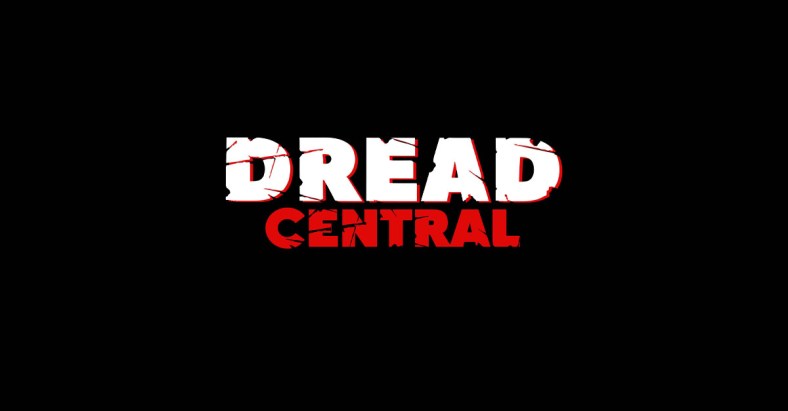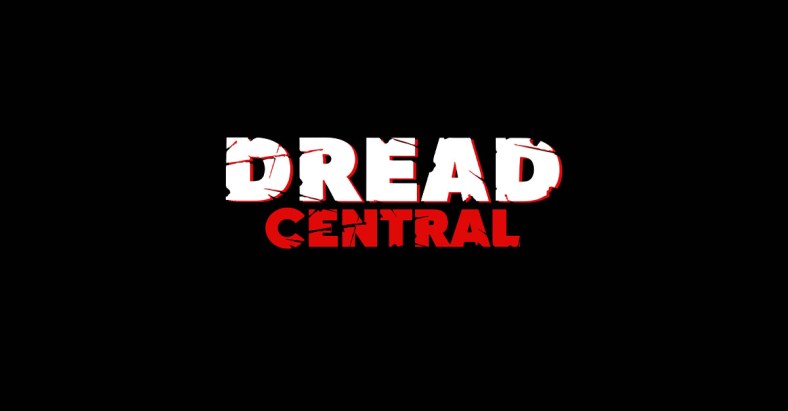Exclusive: Don Mancini Talks Joining Hannibal Season 3 – Part 2

We found out earlier this week that NBC will not be renewing “Hannibal” for a fourth season, but don’t forget we still have several episodes left in Season 3, a few of which were written by Don Mancini, the father of Chucky and creator of Child’s Play.
We’re back now with Part 2 of our in-depth, three-part interview with Mancini (check out Part 1 here in case you missed it), and this time he tells us how crafted his first episode of the show for this season, which takes place in Florence, Italy. Mancini is Italian (the last name is a dead giveaway), but he hadn’t been to “the boot” for years. Find out how he did his research and how he managed to work The Last Supper into his apropos episode.

Dread Central: Even though Bryan Fuller has so much to do with how each episode of “Hannibal” is crafted, he must hire certain writers for a reason… for what you, as individuals can, er, bring to the table. How did your basis of knowledge factor in to your “Hannibal” episodes?
Don Mancini: I think all of the writers have the experience where we would tackle our individual episodes, do our research, and make our individual discoveries about stuff within the context of the story line. On one of my episodes – #3.06 – I was very excited about doing this because it takes place primarily in Florence (as much of the season does). I had, when I was in college, spent a summer in Italy studying Italian in a program for Italian-American students.
I had little bit of exposure to Florence. And one of the things I remember doing was going on a Last Supper tour because one of the things Florence is known for is a tradition of frescos that depict the Last Supper by many, many different artists (not just Da Vinci’s famous painting). And so remembering that, I thought, ‘How am I going to put this in the episode?’ It made it through in the outline. I was very excited. But… none of it ended up making it into the episode, ultimately. But you know, other things do stick.
DC: How do they make Hannibal’s human recipes look so edible? Do they have a staff of chefs on the series?
DM: Yes. They have a culinary expert on their payroll through whom all of this stuff gets funneled. Without saying too much because I don’t want to give it away, in #3.06 something gets cooked and eaten. You know…! And it’s interesting. I came up with some stuff that I thought was appropriate for what was going on and the character. But none of it ended up getting used. Bryan just had some very specific needs based on his own ideas and consultations with the culinary expert about what the dishes would be. So in terms of the food and body parts that get cooked and served up in my episode – some of the broad strokes made it in, but most of the specifics did not. It’s a challenge and interesting, working on the show, the stuff that you learn about food and art, religion, and philosophy. [That’s] another thing that I did bring to it because as you mentioned, there’s a lot of talk about philosophy and religion and humanity and all this intellectual discourse. Sometimes the scenes just feel like philosophy seminars between the characters, sharing.
DC: Yes, and sharing with their therapists!
DM: [Laughs] There are so many therapists on the show; so many of the characters are therapists! Gillian Anderson is incredible as one. I got to write for her, or for that character, on both of my episodes, which was really something. She has some fun stuff in both of the episodes that I worked on.
DC: What about the religious icons and subtext throughout the show?

DM: Having grown up in an Italian-American family and being raised Catholic, that was also something I could relate to, some traditions that I was coincidentally steeped in. So, there is a little bit of philosophical talk that’s specifically Italian and Catholic that I did get to bring into this one episode in particular – stuff about transubstantiation. Do you know what transubstantiation is? (DC: No.) Transubstantiation — this was like a big deal for me when we were learning about this as a kid — is the Catholic belief that during the Mass when the priest blesses the wine and the communion wafer, the wine and the wafer literally, miraculously, transform into the flesh and blood of Christ. It is not a symbolic thing. It is a literal miracle. And I, having been raised Catholic, didn’t even learn this until I was going to an Episcopalian prep school.
I was 12 years old. I came home, and I said to my parents: ‘I learned this crazy thing that we’re supposed to believe.’ We’re at the dinner table. I’m saying, ‘We’re supposed to believe in transubstantiation.’ And my parents are going, ‘What’s that?’ They didn’t know. So I told them. And they said, ‘That’s ridiculous.’ And it was really, for me at that age of 12, starting to realize like, ‘Oh my God. My parents were full of shit regarding this. They’re just going through the motions. They don’t really know all of this.’ So it was a huge part of my growing up and actually a step of separating… as you know, all kids do from their family’s beliefs. Well, not all, but – and it’s not necessarily with religion – in some way, most kids know the experience of stepping away in terms of their separation from their upbringing.
DC: Wow, so that really is very in line with Hannibal’s own philosophy, isn’t it? Like, I read in a U.S. history book that some Native American tribes’ warriors would eat a strip of flesh from enemies they had slain as a sign of dominance and erasure…
DM: Exactly. Exactly. And so, this was a big deal for me. This being part of the Italian Catholic tradition and Hannibal being in Florence, it just seemed apropos about the notion about what happens to food, you know something that you eat, and this turning into flesh; and eating flesh; what that means. So, that seemed very appropriate for “Hannibal.” I got to play with that a little bit. So, that was cool.
DC: Since you were working on all this months ago, I assume the whole season is written, if not already shot? As a fan of the show, now you know everything that’s going to happen. Does it diminish your enjoyment or actually enhance it?
DM: Oh yeah. We’re done [with the writing/story line]. You know, when I had my first dinner with Bryan that I described before where he pitched to me the entire season, I was so agog because it was so awesome; and as a fan, I was like, ‘This is great.’ But I said to him, ‘Oh, my God. If this doesn’t work out, if you end up not hiring me to do this, then the whole experience of the show is ruined for me.’ But fortunately, he did hire me! It was so thrilling to be able to weigh in, to be able to contribute to this amazing show and this amazing character and characters and mythology.
First there were the books and the movies, and now in just two seasons, it’s already one of the most revered and iconic horror franchises ever. And having created one myself [The Child’s Play horror franchise], I mean it was a real thrill to be able to contribute to another. So, it’s really fun as a first timer in TV to watch the process. We’re still early in now, because Season 3, Episode 3 [just aired]. It’s fun to see people responding to it and responding to the twists.
DC: Is there much deviation from the Thomas Harris source material? It’s the same, but different…

DM: Well again, I think it really just comes back to Bryan. He is so singularly talented. He is probably the most talented person that I have ever personally worked with. And I think that he has such a grand and specific vision of this show based on his love of the Thomas Harris mythology. That vision, as we discussed before, extends all the way down to the most minute details in production design, costumes, colors; and it’s very specific.
And it’s dense. I mean, there’s a lot going on. I think one of the real inner pieces of genius that Bryan brought to it was the relationship: It all comes down to the relationship between Hannibal and Will. That relationship was pretty much invented by Bryan because that didn’t exist in the books. Red Dragon – that’s so much of what “Hannibal” was for the first two years – of course, it was a prequel. And in the book Red Dragon all we know is that Will Graham was this profiler who caught Hannibal and is now consulting with him on the Red Dragon.
But Bryan invented this whole complicated, fascinating… well, I guess what he calls a bromance between these two guys that to me, as a gay guy, also I found fascinating on this whole other sublevel. I know that there are others who respond to it this way, too. I’d be interested to hear what you think about it.
To know what we think about it, you will have to wait for our third and final installment of this very interesting and totally exclusive interview with Don Mancini! In the meantime be sure to tune in to NBC tonight for “Hannibal” Episode 3.04, “Aperitivo.”
And keep tweeting to #SaveHannibal – it might still have a future via another outlet.
“Hannibal” Episode 3.04 – “Aperitivo” (6/25/15; 10-11 PM)
DR. CHILTON’S RETURN GIVES A GLIMPSE INTO THE EVENTS THAT FOLLOWED HANNIBAL’S BRUTAL ATTACK — After surviving a disfiguring gunshot, Dr. Fredrick Chilton (guest star Raúl Esparza) is now focused on rallying support to capture Hannibal (Mads Mikkelsen), using Will (Hugh Dancy) as bait.
Jack (Laurence Fishburne) is distracted by Bella’s (guest star Gina Torres) failing health, but he implores Will to abandon the risky idea of finding Hannibal. Meanwhile, Alana Bloom (Caroline Dhavernas) entertains a different approach, potentially partnering with Mason Verger (guest star Joe Anderson) to utilize his vast resources. Glenn Fleshler and Katharine Isabelle also guest star.
For more info be sure to visit “Hannibal” on NBC.com, “like” “Hannibal” on Facebook, and follow “Hannibal” on Twitter.

Categorized:News

